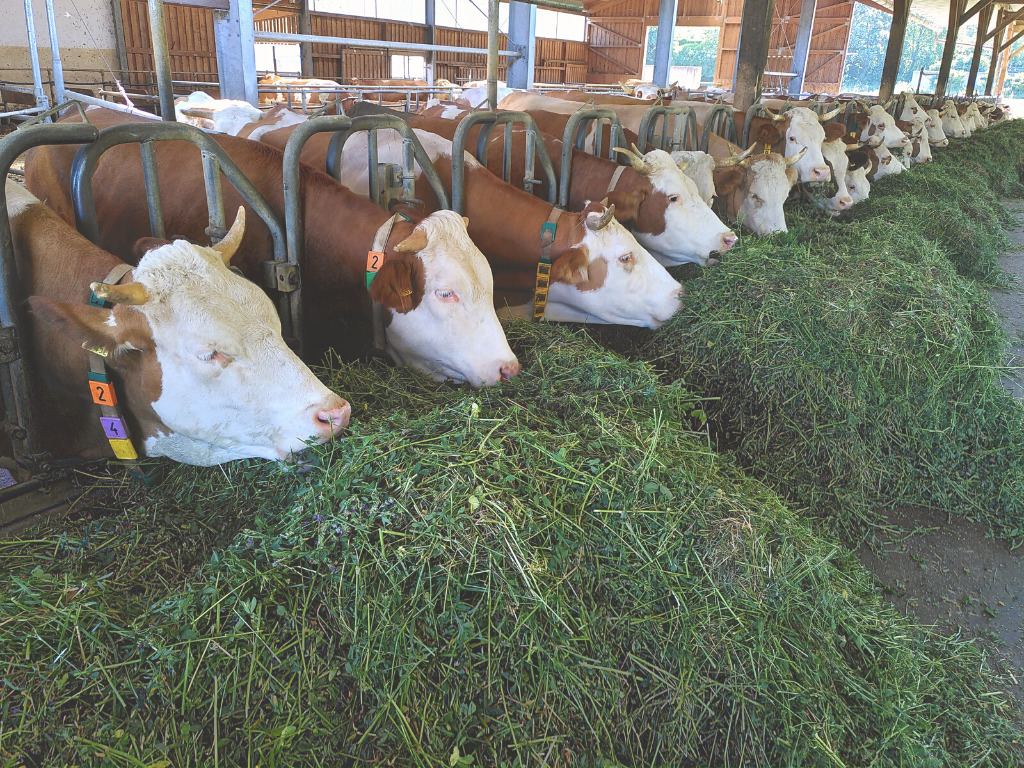Rich Countries Need to Decrease Meat Consumption 75% to Fight Climate Change, Says New Research
4 Mins Read
New findings published in the Annual Review of Resource Economics suggest a 75 drop in meat consumption is necessary to meet climate targets.
According to new research, if the planet is to continue feeding humans, rich countries must significantly reduce their meat consumption, “ideally by at least 75 percent,” the researchers out of the University of Bonn said. The study reviews recent research on various aspects of meat consumption, both environmentally as well as economically.
“Every EU citizen consumes around 80 kilograms of meat per year,” the authors write. “But every juicy steak, every delicious sausage has a price that we do not pay at the counter, because livestock farming damages the climate and the environment.”
The study, entitled “Meat Consumption and Sustainability” points specifically to methane, which is produced by ruminant animals raised for food, namely cattle and sheep. In its recent installment of the Sixth Annual Report on climate change, the IPCC urged for a 30 percent drop in methane emissions by 2025.

“If all humans consumed as much meat as Europeans or North Americans, we would certainly miss the international climate targets and many ecosystems would collapse,” said study author Prof. Dr. Matin Qaim of the Center for Development Research (ZEF) at the University of Bonn.
“We therefore need to significantly reduce our meat consumption, ideally to 20 kilograms or less annually. The war in Ukraine and the resulting shortages in international markets for cereal grains also underline that less grain should be fed to animals in order to support food security.” The researchers say that currently, half of all grains go to feed livestock.
Where meat-eating makes sense
The researchers aren’t advocating for a complete shift away from meat, though, citing challenges in regions where growing plant-based food at scale isn’t feasible, and communities that depend on animal protein, particularly in underdeveloped parts of the world.
“In such cases, animals are often a key element of a healthy diet,” says study co-author Dr. Martin Parlasca. “For many people, they are also an important source of income. If the revenue from milk, eggs and meat is lost, this can threaten their livelihoods.”
These regions aren’t the problem, though, say the researchers. It’s the wealthier countries driving the bulk of emissions. A study last year showed carbon emissions increased in the world’s 20 richest countries as pandemic restrictions eased up. According to the Climate Transparency Report, these countries make up about 75 percent of global CO2 emissions.

Increasing taxes on meat could be one solution, the researchers say, especially in regions where meat is consumed at high levels, such as North America, Europe, and Australia.
“That’s certainly unpopular, especially since a ten- or twenty-percent surcharge probably wouldn’t be enough, if it’s supposed to have a steering effect,” Quim says. “Meat, however, has a high environmental cost that is not reflected in current prices. It would be entirely reasonable and fair to have consumers share more of these costs.”
‘Sustainable consumption’
The researchers also suggest education plays a role in curbing our appetite for meat. The authors suggest “sustainable consumption” become part of curricula.
“We need to become more sensitive to the global impact of our decisions,” says Qaim. “This is true not only with food, but also with the shirt we buy at the discount store to wear for a single evening at a party.”
There have been numerous studies and warnings from leading climate scientists on meat consumption and climate change. The new findings echo this, particularly as global meat consumption continues to rise in low and middle-income regions.

“Meat production requires more land and water than the production of plant-based foods and
has much larger environmental and climate footprints,” the authors note. “Hence, against the backdrop of planetary boundaries, high and further rising meat consumption levels are worrisome.”
They point to the negative health effects on human health and animal welfare associated with intensive meat production and excessive consumption.
“Therefore, notable reductions in meat consumption levels would be useful and important in terms of various sustainability dimensions, at least in high-income countries,” the researchers say.
Photo by Valeria Boltneva via Pexels




